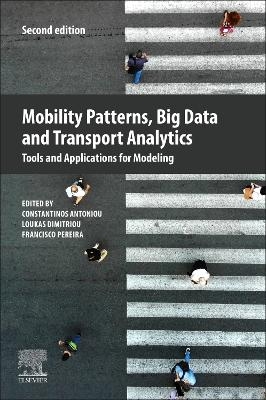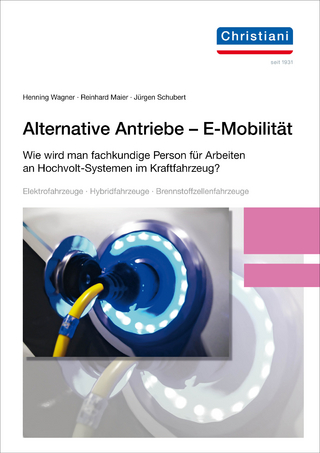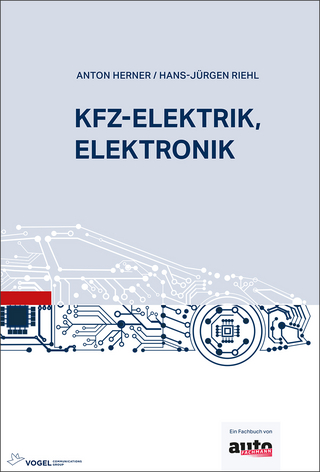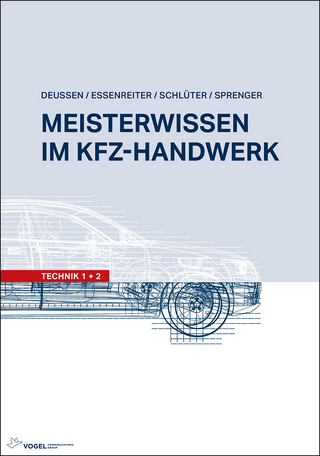
Mobility Patterns, Big Data and Transport Analytics
Elsevier - Health Sciences Division (Verlag)
978-0-443-26789-5 (ISBN)
- Noch nicht erschienen (ca. Juni 2025)
- Versandkostenfrei innerhalb Deutschlands
- Auch auf Rechnung
- Verfügbarkeit in der Filiale vor Ort prüfen
- Artikel merken
Users will find a detailed, mobility ‘structural’ analysis and a look at the extensive behavioral characteristics of transport, observability requirements, limitations for realistic transportation applications, and transportation systems analysis that are related to complex processes and phenomena. This book bridges the gap between big data, data science, and transportation systems analysis with a study of big data’s impact on mobility and an introduction to the tools necessary to apply new techniques.
Constantinos Antoniou is a Professor and Chair of Transportation Systems Engineering at the Technical University of Munich, Germany. He was previously an Associate Professor at the National Technical University of Athens, Greece. His research focuses on modelling and simulation of transportation systems, Intelligent Transport Systems (ITS), calibration and optimization applications, road safety and sustainable transport system. Antoniou has been involved in a large number of projects, primarily in Europe and the US, and has authored more than 500 scientific publications, including in Elsevier’s Transportation Research Part C: Emerging Technologies (for which he serves on the editorial board) and Transportation Research Part A: Policy and Practice (for which he serves as an Associate Editor). Loukas Dimitriou is an Assistant Professor in the Department of Civil and Environmental Engineering, University of Cyprus (UCY) and founder and head of the Lab for Transport Engineering, UCY. His research interests focus on the application of advanced computational intelligence methods, concepts and techniques for understanding the complex phenomena involved in realistic transport systems, and developing design and control strategies. The methodological paradigms that he proposes utilize elements from Data Science, behavioral analytics, complex systems modelling and advanced optimization, applied in traditional fields of transport, like demand modelling, travel behavior and systems organization, optimization and control. He has more than 100 publications in peer-reviewed journals, proceedings of conferences and book chapters, while he is an active member of international scientific organizations and committees. Francisco Pereira is a Professor at the Technical University of Denmark, in Kongens Lyngby, Denmark, where he leads the Smart Mobility research group. Previously, he was Senior Research Scientist at MIT/CEE ITSLab, where he worked on real-time traffic prediction, behavior modeling, and advanced data collection technologies, both in Boston and Singapore, as part of the Singapore-MIT Alliance for Research and Technology, Future Urban Mobility project (SMART/FM). His main research focus is on applying machine learning and pattern recognition to the context of transportation systems with the purpose of understanding and predicting mobility behavior, and modeling and optimizing the transportation system as a whole. He has been published in many journals, including in Elsevier’s Transportation Research Part C: Emerging Technologies.
1. Big data and transport analytics
Part I
2. Machine Learning Fundamentals
3. Using Semantic Signatures for Social Sensing in Urban Environments
4. Geographic Space as a Living Structure for Predicting Human Activities Using Big Data
5. Data Preparation
6. Data Science and Data Visualization
7. Model-Based Machine Learning for Transportation
8. Capturing Travel Behavior Patterns on the Anticipating Transportation Technologies and Services
9. Reinforcement Learning for Transport Applications
10. Foundational principles of learner representations
Part II
11. Statewide Comparison of Origin-Destination Matrices Between California Travel Model and Twitter
12. Transit Data Analytics for Planning, Monitoring, Control, and Information
13. A bridge between transit collective mobility patterns and fundamental economics
14. Data-Driven Traffic Simulation Models: Mobility Patterns Using Machine Learning Techniques
15. Big Data and Road Safety: A Comprehensive Review
16. A Back-Engineering Approach to Explore Human Mobility Patterns Across Megacities Using Online Traffic Maps
17. Pavement Patch Defects Detection and Classification Using Smartphones, Vibration Signals and Video Images
18. Collaborative Positioning for Urban Intelligent Transportation Systems (ITS) and Personal Mobility (PM): Challenges and Perspectives
19. Experiences with emerging data collection
20. Machine Learning methods for processing time series count data in Transportation
21. Analysing Travel Patterns on Data Collected by Bicycle Sharing Systems
22. Optimal Pricing Schemes in the Maritime Market: Implementations by Deep RL
23. Inequalities in mobility: Data-driven analysis of social equity issues in transport
24. Conclusion
| Erscheint lt. Verlag | 1.6.2025 |
|---|---|
| Verlagsort | Philadelphia |
| Sprache | englisch |
| Maße | 152 x 229 mm |
| Themenwelt | Sachbuch/Ratgeber ► Natur / Technik ► Fahrzeuge / Flugzeuge / Schiffe |
| Sozialwissenschaften ► Soziologie | |
| Wirtschaft ► Betriebswirtschaft / Management | |
| ISBN-10 | 0-443-26789-8 / 0443267898 |
| ISBN-13 | 978-0-443-26789-5 / 9780443267895 |
| Zustand | Neuware |
| Informationen gemäß Produktsicherheitsverordnung (GPSR) | |
| Haben Sie eine Frage zum Produkt? |
aus dem Bereich


